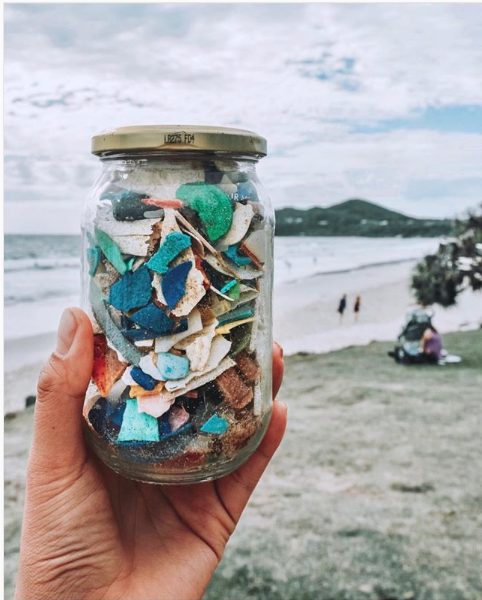What are the 5 Rs?
The 5 Rs are a method for achieving greater coherence in our everyday lives. When we speak about combating plastic pollution before the waste reaches the waterways and then the oceans, we’re inevitably taking a step back; we’re looking at the bigger picture.
Adopting a coherent lifestyle is quickly becoming a necessity. Indeed, it’s becoming hard to get through a supermarket without thinking about excessive packaging, or going for a walk without being surprised by the size of the dustbins we come across. On the scale of our planet, we’re producing waste that it simply cannot cope with!
To adopt a new way of consuming, the 5 Rs can help us!
REFUSE
Refuse: The best waste is the kind we don’t produce. With a proactive approach, we can avoid a lot of upset. Leaflets, poor quality advertising items, etc., refuse them and you won’t have to deal with them. For that to work, you have to remain vigilant: you buy an item and the shop assistant slips it into a plastic bag, your coffee is served to you with an individually wrapped stirrer, you help yourself to a glass of water at the office, and the cups are made of plastic, etc. If you want to refuse, you also have to be aware of all these little elements of waste, which pollute our environment on a daily basis.
Ideas for ‘refusing’:
- Bring your own containers if you want to eat to take away,
- Always have a cloth bag with you,
- If the water is drinkable, slip a water bottle into your bag to avoid the need for cups or water bottles.
REDUCE
Reduce: This is about about making the right consumption choices and scaling back your purchases in relation to your actual needs. Do you really need the object you have your eye on? Will you use it on numerous occasions? If buying something is linked to pleasure in your mind, don’t imagine that the principle behind reduction will mean your life is dull: buy less, but of better quality.
A beautiful product, made of wholesome materials, will be much more enjoyable to use. You’ve fallen for some lovely garment and the same thing, albeit in a different colour, is in the sale? The offer seems attractive, but it quickly loses its appeal when you think about the fact that the item is not biodegradable, about the polluting agents used to process the fibre, the working conditions of the people who have manufactured it (be attentive to humans).
Ideas for ‘reducing’:
- Do your food shopping in bulk and favor the markets of local producers,
- Start “Do it yourself” in the kitchen but also in cosmetics or cleaning products,
- For your wardrobe, prefer some good basics of good quality and natural materials than a multitude of small items of poor quality quickly worn.
REUSE
Reusing a product is about finding a new use for it in its original form. As such, it’s not about recycling. If you’re shrewd, you can extend the lifespan of your things. Over time, you’ll instinctively adopt reusable objects rather than disposable objects.
Ideas for ‘reusing’:
- Buy second-hand (and offer a second life to a product that is potentially manufactured with rare materials, such as electronics for example)
- Keep the food jars and use them to store your leftovers or your dry products purchased in bulk.
REPAIR
Repair: Repair an object, a product, is to restore it in good condition or to restore it in accordance with the primitive style (restore). It is not about recycling.
Some ideas to “repair”
- Choose a product whose spare parts will be available for a long time and which can be repaired
- Put a patch on an inner tube of your flat bike rather than changing the wheel
- Put elbow pads on the hole of your favorite sweater
RECYCLE
Recycle: if we have followed our “R’s” consistently, we have very little left to recycle at the end of the journey, and this alternative is obviously more positive than sending our goods to landfill and thus wasting precious resources. To recycle well, find out about the guidelines of your city, your neighborhood.
Ideas for ‘recycling’:
- Have all the answers about sorting instructions and train your family (why not in the form of a game),
- Favor recyclable plastics that are collected in your area.
